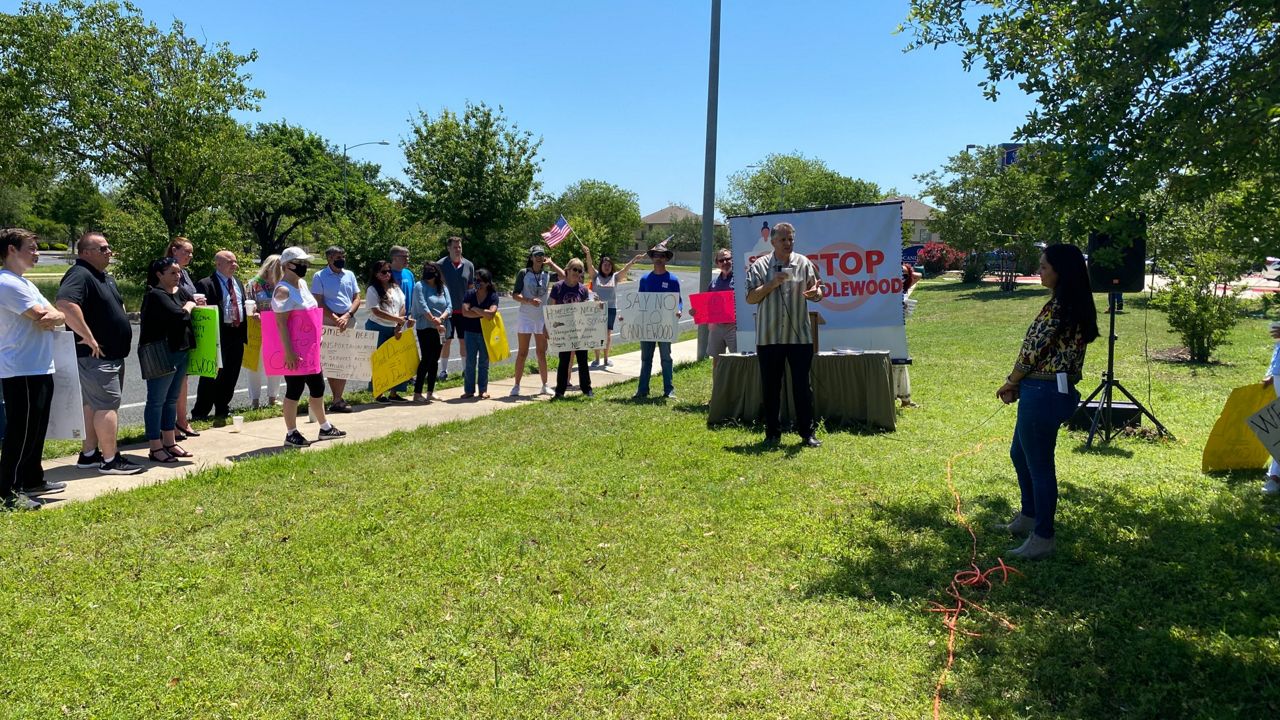AUSTIN, Texas — A group of community members and business owners in northwest Austin are pushing back after the city council voted to purchase a hotel to convert into permanent supportive housing for people experiencing homelessness.
Just a few months ago, Rupal Chaudhari wouldn’t have thought she’d be going head to head with the City of Austin.
“I have two little kids, I have a beautiful family. This is not what I do. I do not go fight with [the] city," said Chaudhari.
But that changed a few months ago when the Austin City Council voted to purchase a Candlewood Suites hotel in northwest Austin to convert into housing for people experiencing homelessness.
Chaudhari began organizing local business owners and community members to protest the project.
“This is just so wrong at so many different levels. One, as a community, it's a fundamental right to be safe and secure. We have a right to notice, we have right to know what [the] city plans to do, and our children need to be safe. We shouldn't have to choose between working hard and also providing safety and security for our businesses, our homes, our children," said Chaudhari.
She says she’s also worried about the impact on her business.
Chaudhari’s family owns the Hampton Inn and Homewood Suites that share a driveway with the Candlewood Suites property.
“If my guests don't feel safe, my staff does not feel safe, our neighborhood is not safe, you think people are going to compromise safety and come and stay with us?" said Chaudhari.

But some groups in Austin are in favor of the project.
Marina Roberts is a public school teacher and an advocate for people experiencing homelessness, a cause that’s especially close to her heart.
“I have a brother who is unhoused," said Roberts. "For me, doing this work is about making sure that people like my brother have a shot at a dignified life, even if I can't personally, you know, offer that to him.”
She says she supports the city’s plans for the Candlewood Suites because it gets people experiencing homelessness off the streets.
“We believe that the solution to homelessness is about providing social services, it's about housing, it's about getting people into homes, giving people access to health care," said Roberts.
Chaudhari is now raising money to file a lawsuit against the city, and says that the city council should have sought out community input before moving forward with the project.
“My fight is not about saying don't house the homeless, my fight is about [saying the] city needs to do better, it needs to communicate, come up with transparency, and have to have an assurance and have to have a plan in place. You can't just put something here in the neighborhood and say nobody will be impacted," said Chaudhari.
In fact, the subject has reached Texas's top attorney. Texas Attorney General Ken Paxton, who is frequently at odds with the City of Austin, in response to an inquiry from Williamson County Attorney Dee Hobbs, on Monday released an opinion concerning a proposed lawsuit. In it, Paxton states that because the property, which is located in Austin but resides in Williamson County, is not zoned for residential use, Hobbs can proceed with a lawsuit.
Meanwhile, while Roberts says it’s a step in the right direction for unhoused people, saying, “What they need is a place to live, what they need is a home. I would hope that you would give this time, you know, give this a chance because it is an absolutely necessary step for the city to take if we're ever going to address homelessness.”
Chaudhari says her concern is for her family, and those already living here.
“I live here. I work here. No permanent supportive housing should be this close to residents, it should not be sharing a fence with residents," said Chaudhari.



